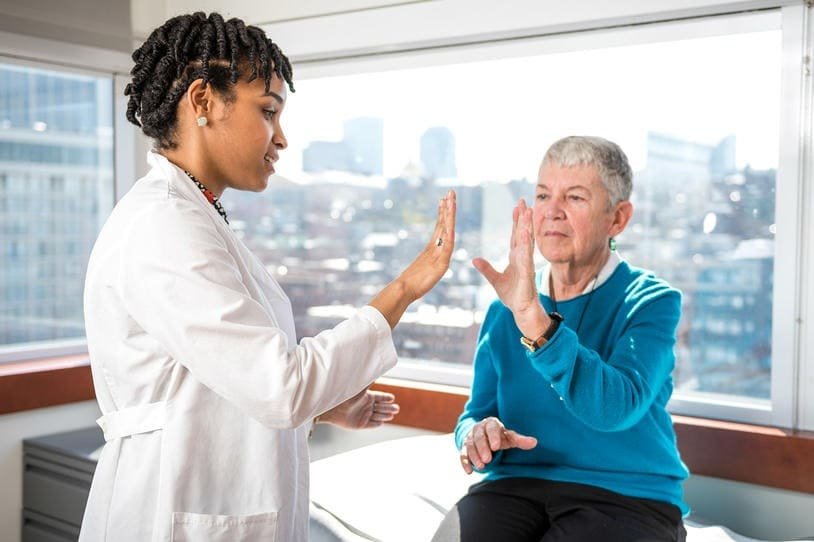
Comprehensive Care for Movement Disorders
Movement disorders are neurological conditions that cause abnormal voluntary or involuntary movements, impacting muscle coordination and control. At Dr. Srikanth Neuro in Hyderabad, we specialize in diagnosing and treating a wide range of movement disorders to help patients regain control and improve their quality of life.
Understanding Movement Disorders
Movement disorders can arise from genetic conditions, neurodegenerative diseases, or damage to the nervous system. These conditions often make daily activities challenging, affecting mobility, coordination, and overall well-being.
Common Movement Disorders We Treat
- Parkinson’s Disease: A progressive disorder causing tremors, stiffness, slowness of movement, and postural instability.
- Essential Tremor: Involuntary, rhythmic shaking, often affecting the hands.
- Dystonia: Involuntary muscle contractions causing repetitive or twisting movements.
- Huntington’s Disease: A genetic disorder leading to movement, cognitive, and psychiatric issues.
- Tourette Syndrome: Characterized by repetitive movements or sounds (tics) that are difficult to control.
- Ataxia: Impaired muscle coordination affecting walking, grasping objects, or swallowing.
- Chorea: Unpredictable, involuntary body movements affecting various body parts.
Diagnostic Services
We utilize advanced diagnostic tools to accurately identify movement disorders and their underlying causes:
- Neurological Examination: Comprehensive assessment of movement, muscle strength, reflexes, and coordination.
- Imaging Studies:
- MRI and CT scans to detect structural brain abnormalities.
- DaTscan to assess dopamine-producing cells, commonly used for Parkinson’s disease diagnosis.
- Electromyography (EMG) and Nerve Conduction Studies (NCS): Measures muscle and nerve electrical activity to diagnose conditions like dystonia or neuropathies.
- Genetic Testing: Identifies mutations linked to hereditary movement disorders, such as Huntington’s disease or certain ataxias.
Treatment Options
Our specialists develop personalized treatment plans tailored to each patient’s condition:
- Medications:
- Levodopa and dopamine agonists for Parkinson’s disease to improve motor symptoms.
- Anticholinergics to reduce tremors and muscle stiffness.
- Botulinum toxin injections for dystonia and certain tremors.
- Deep Brain Stimulation (DBS): A surgical procedure implanting electrodes to regulate abnormal brain impulses, effective for Parkinson’s disease, essential tremor, and dystonia.
- Physical and Occupational Therapy:
- Physical therapy to improve mobility, strength, and balance.
- Occupational therapy to enhance daily living skills and independence.
- Speech Therapy: To address speech and communication difficulties in disorders affecting facial and throat muscles.
Why Choose Dr. Srikanth Neuro?
Our Movement Disorder program is designed to deliver comprehensive and compassionate care:
- Expert Team: Led by Dr. Srikanth, our neurologists, neurosurgeons, and therapists specialize in movement disorder care.
- Comprehensive Care: We offer a full spectrum of diagnostic and treatment services tailored to individual needs.
- Cutting-Edge Technology: Equipped with advanced diagnostic and therapeutic tools for optimal outcomes.
- Patient-Centered Approach: We prioritize patient comfort and well-being, fostering a supportive environment.